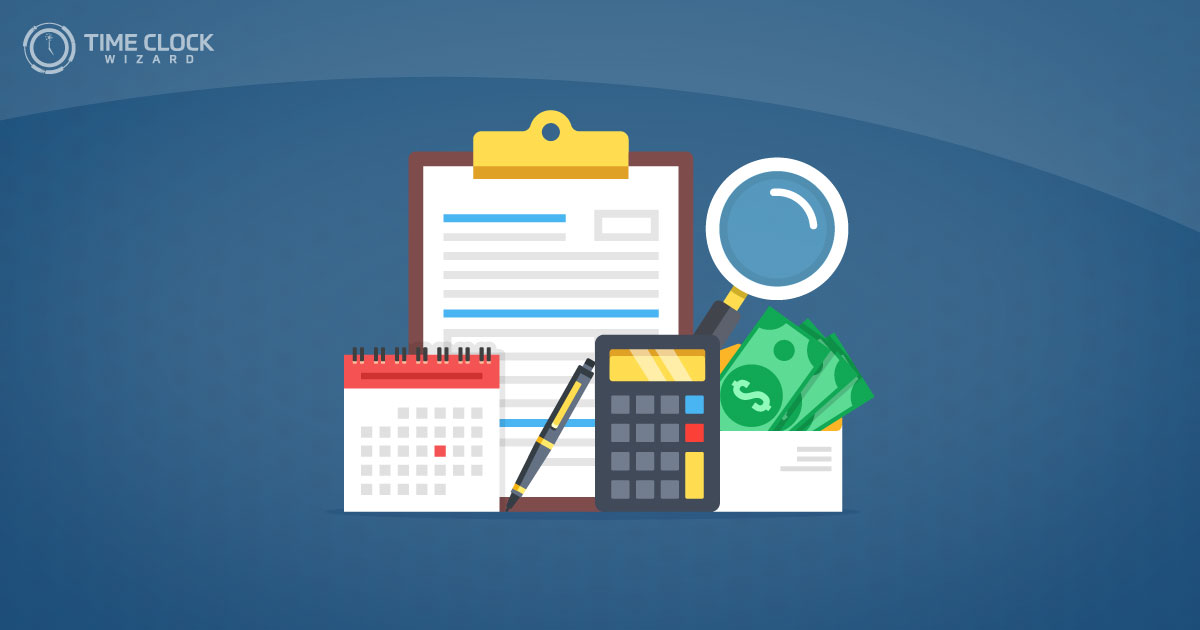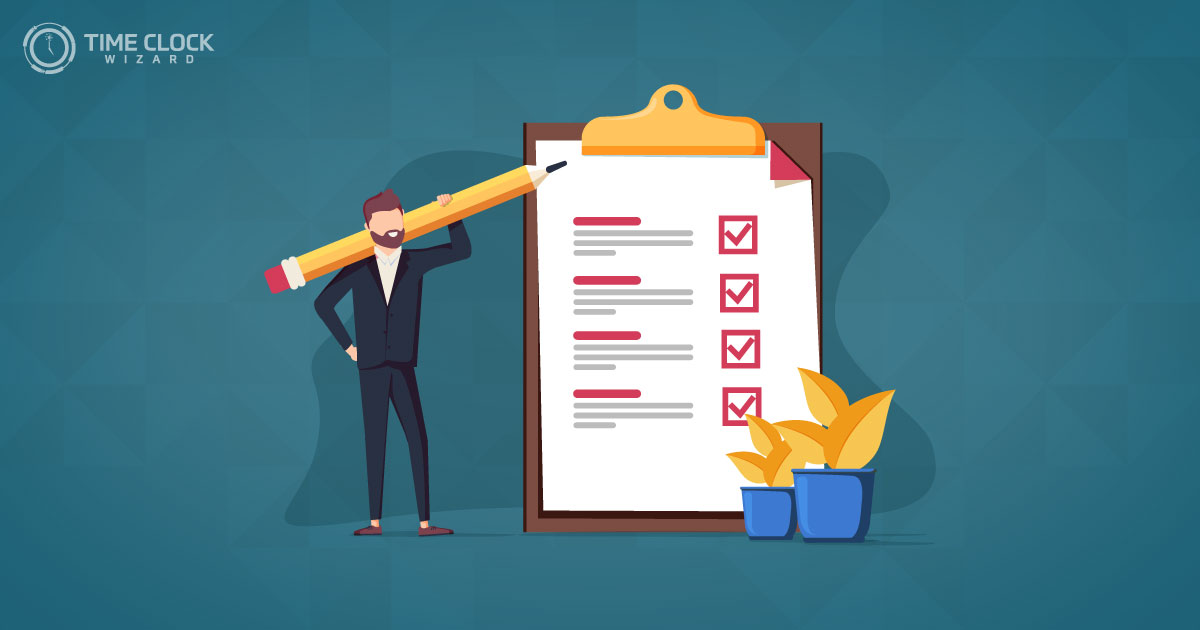
Ever stop to think about what really sets a star employee apart from the rest? Well, the qualities of a good employee go far beyond just skill sets and experience. In today’s fast-paced and ever-evolving workplace, understanding these essential traits can make the difference between a flourishing career and a stagnant job. Isn’t it about time we dive into what makes someone truly indispensable at work?
From communication skills that dazzle to problem-solving abilities that turn hurdles into stepping stones, the top qualities of a good employee not only enhance individual careers but also rocket propel team success and overall organizational productivity. So, why are these traits so vital in today’s workplace? Let’s unfold the magic behind each quality and see how they contribute to making the workplace a buzzing hub of productivity!
Identifying Key Traits: What Makes a Good Employee?
So, what exactly makes a great employee stand out from the rest? While each role and industry might demand its own set of specific skills, certain universal traits significantly enhance an employee’s effectiveness and contribution to their workplace. Identifying these qualities not only helps in hiring the right people but also in nurturing a productive and positive work environment.
Consider the importance of adaptability in the rapidly changing modern workplace. Are employees who can pivot quickly between tasks and manage changes with ease not invaluable? Indeed, adaptability is a key trait of a good employee, enabling them to thrive in dynamic environments and overcome unpredictable challenges.
Another crucial characteristic is problem-solving ability. Effective employees don’t just identify issues; they actively work to find solutions. They bring a mindset that views challenges as opportunities to improve, making them invaluable assets in any team.
Let’s not forget the ability to work within a team. Collaboration and a willingness to share knowledge and experiences enrich the collective intelligence of a group, driving projects forward and fostering an atmosphere of mutual respect and learning.

Critical Thinking Abilities and Problem Solving Skills
In the fast-paced and ever-evolving workplace, the Qualities of a Good Employee cannot be overstated, especially when it comes to critical thinking abilities and problem-solving skills. These qualities are what separate a good employee from a great one. But what makes these skills so essential?
Critical thinking empowers employees not only to tackle complex problems but also to anticipate potential challenges before they become issues. Isn’t it impressive when an employee not only solves a problem but prevents it from occurring in the first place? That’s the hallmark of a strategic thinker—a quality highly prized in any industry.
Problem-solving skills, on the other hand, are all about adaptability and resilience. How effective can you be in a crisis? Can you think on your feet and devise innovative solutions under pressure? These are questions that highlight the significance of problem-solving abilities in the workplace.
- Enhances efficiency by reducing downtime
- Boosts workplace morale by empowering employees to handle challenges
- Contributes to the sustainability and growth of the business
Overall, employees who excel in these areas are often seen as assets to their teams, bringing value that extends far beyond their immediate tasks. By fostering a culture that values these critical skills, organizations not only thrive but also adapt seamlessly to the changing dynamics of the global market.
Reliability and Dependability in the Workplace
Why is it that some employees are considered more valuable than others? A lot of it boils down to traits like reliability and dependability. These qualities ensure that an individual not only performs their duties efficiently but also instills trust within their team. If you’re aiming to be seen as a cornerstone in your workplace, honing these traits is essential.
Reliability means showing up on time, meeting deadlines, and consistently delivering quality work. Dependability, on the other hand, refers to the ability to be trusted to do what you say you will do. Can your team rely on you even during hectic periods or unexpected challenges? This is where dependability shines, making you an invaluable asset to any organization.
- Always being prepared for meetings and presentations.
- Closely following project timelines and adjusting as needed.
- Communicating proactively with team members and leaders.
Moreover, employers greatly value these traits because they significantly reduce supervision effort and increase team cohesiveness. When everyone in a team is reliable and dependable, the workflow smoothens, and productivity soars. Isn’t that an environment you’d want to be part of?

Effective Communication: A Core Competency for Success
Mastering effective communication is undoubtedly one of the essential qualities of a good employee. In today’s dynamic workplace environment, the ability to clearly and effectively convey information is paramount. But what makes communication so crucial for success?
Clear communication helps in avoiding misunderstandings and ensures that tasks are completed efficiently and correctly. When employees can articulate their thoughts and ideas clearly, they contribute to a more harmonious and productive work environment. It’s not just about talking; active listening skills are equally important. Employees who listen well tend to understand tasks better and make fewer mistakes. Isn’t it amazing how much impact good communication skills can have?
- Enhances teamwork by ensuring all team members are on the same page.
- Reduces errors by clarifying tasks and responsibilities.
- Boosts morale and creates a positive work environment through open and honest dialogue.
Effective communication is not just about talking or listening; it involves non-verbal cues, written skills, and even the tone of voice. Therefore, good employees continually refine these skills to adapt to various scenarios and individuals. Can you imagine the possibilities if everyone communicated a little better?
Teamwork and Collaboration in a Diverse Environment
In today’s globalized workplace, embracing teamwork and collaboration in a diverse environment is undoubtedly one of the essential qualities of a good employee. But why is it so crucial, and how does it impact productivity and workplace harmony? Think about it: when employees from various backgrounds and cultures come together, the potential for innovation and problem-solving increases exponentially.
The ability to work effectively within a team that values diversity can lead to more creative solutions. After all, different perspectives often lead to unique solutions that would not have been possible in a homogeneous group. Have you ever noticed how dynamic teams tend to drive the most successful projects?
Ultimately, the ability to collaborate in a diverse setting not only reflects well on each team member’s individual capacity but also bolsters the company’s reputation as a forward-thinking, inclusive organization. Isn’t it wonderful how cultivating such an environment can lead to greater success for everyone involved?
Common Questions
What defines a great employee?
A great employee is defined by a combination of qualities including professionalism, strong work ethic, and the ability to work collaboratively with others. They consistently demonstrate commitment to their roles and the goals of the organization, often going beyond their job requirements to contribute to the team’s success. Great employees are reliable, take initiative, and are adaptable to changes. Additionally, they possess excellent communication skills and are proactive in problem-solving, making them invaluable assets to any employer.
What is the strongest attribute of an employee?
The strongest attribute of an employee can vary depending on the job and industry, but a common and crucial attribute is adaptability. Adaptability refers to an employee’s ability to adjust to new conditions, handle multiple tasks, and learn new skills as needed. In today’s fast-changing work environment, being adaptable enables employees to thrive under different conditions, face challenges efficiently, and contribute to the ongoing success of their organization.
What are the 3 qualities of a great workplace?
A great workplace is characterized by engaging leadership, a supportive work culture, and opportunities for growth. Effective leaders inspire and motivate employees, fostering a sense of trust and respect throughout the organization. A supportive work culture emphasizes teamwork, open communication, and respect for diversity, creating a positive and productive environment. Continued opportunities for professional growth and personal development also play a critical role, ensuring that employees feel valued and invested in their roles, which in turn enhances job satisfaction and retention rates.
What are the qualities of work performance?
The qualities of work performance include consistency, efficiency, and quality of work. Consistency in performance allows for reliability and predictability in meeting job responsibilities. Efficiency refers to the optimal use of time and resources to achieve the best possible outcomes. High quality of work is marked by attention to detail, innovation, and a strong output that meets or exceeds organizational standards. These qualities contribute significantly to an individual’s success and the overall effectiveness of a team.
The Role of Integrity and Ethics in Employee Conduct
At the heart of an excellent workplace, the role of integrity and ethics is undeniable. But why are these qualities so pivotal in shaping employee conduct? It comes down to trust and reputation, key factors that every successful organization thrives on. How, then, do integrity and ethics manifest in daily work routines?
Employees who demonstrate a high level of integrity make choices that uphold the company’s values, even when no one is watching. This reliable moral compass ensures that decisions and actions align with the collective good of the organization, fostering a trustworthy and secure environment. Wouldn’t you agree that this forms the backbone of a strong corporate culture?
Moreover, ethical behavior in the workplace goes beyond compliance with laws and regulations. It involves a commitment to treating colleagues and customers with respect and fairness. Can you imagine the positive atmosphere created when employees know that their contributions are valued and their treatment is always fair and just?
- Upholding company morale and ethical standards.
- Promoting transparency and openness in communications.
- Ensuring fairness in all transactions and interactions.
The dedication to integrity and ethics influences how stakeholders perceive a company. It attracts like-minded individuals who value ethical considerations and want to be part of an organization that prioritizes doing the right thing. Ultimately, these qualities not only enhance individual performance but also significantly contribute to the organization’s long-term success. 🌟
Final Thoughts: 15 Essential Qualities of a Good Employee & Their Importance
We’ve explored the top qualities of a good employee, and it’s clear why these attributes are indispensable for anyone aiming to thrive in the modern workplace. From critical thinking to effective communication, each quality plays a pivotal role in shaping a reliable and productive employee. Isn’t it fascinating how integral these traits are for both personal and professional growth?
As you reflect on these qualities, consider how they manifest in your own professional life or in the employees around you. Are there areas you or your team could improve on to boost workplace efficiency and harmony? Remember, cultivating these traits is not just about personal achievement but also about contributing positively to a vibrant, successful workplace environment. Let’s put these insights into action and watch our workspaces transform! 🌟





